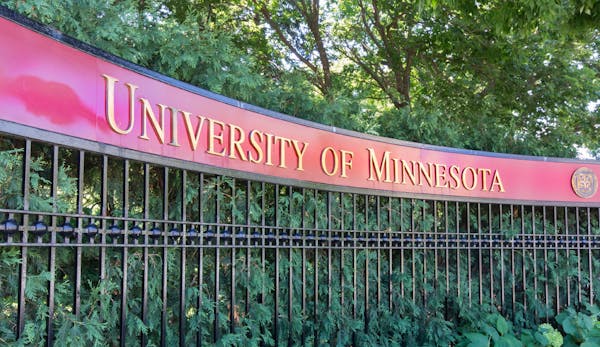Anoka-Hennepin students must now mask up if their school logs an unusually high rate of absences and the county they live in registers more than 50 infections per 10,000 residents.
That's the upshot of a new policy the school board approved 5-1 Monday for Minnesota's largest district, which sets building-level criteria for mask mandates as opposed to the district-wide approach decision-makers have taken since the start of the academic year.
In addition to community spread of COVID-19, the district's new policy will also consider student absences in triggering a mask mandate for pupils in kindergarten and above. It also calls for educators in all Anoka-Hennepin early childhood education centers to mask up universally.
Superintendent David Law said district officials adopted the attendance metric as a rough stand-in for building-level COVID infections, noting about 90% of student absences so far this year were due to illness.
Parents have been clamoring for the district to take school-level data into account when setting mask policy, Law said.
And because infections can take days or even weeks to appear in the Minnesota Department of Health's official tallies, Anoka-Hennepin officials were left to approximate as best they could with the attendance data.
"We were put in an awkward spot of trying to make decisions with data that doesn't exist," Law told the board.
The new policy goes into effect Jan. 31. And while it sets new standards for building-level mask mandates, the updated guidance is missing any mention of what conditions, if any, would trigger a return to remote learning for students in the state's largest district.
"I'm grateful we're not having to make some of those considerations tonight," board member Nicole Hayes said.
District spokesperson Jim Skelly said officials decided against including metrics that would return students to distance learning because of the drastic drop in literacy and math proficiency that followed the first year's worth of COVID-related interruptions to in-person instruction.
"Our priority right now is to maintain in-person learning to the greatest extent possible," he said.
The district's new COVID dashboard will launch next week. By mid-day Friday, Law said, families should be able to look up their children's school and see whether masks will be required the following week.
If their school building is highlighted in red, that means absences for the week are twice the historic average and infections in that county have surpassed 50 per 10,000 residents.
"This should push choice back to parents quickly at many sites," Law said. "Other districts have said 'everybody,' for between two weeks and a month."
Anoka-Hennepin is the only district among the state's 10 largest that will take a building-by-building approach to its masking policy.
The district's current policy requires elementary students to wear masks if both counties log 15 or more infections per 10,000 residents and only recommends that middle- and high-schoolers mask up if countywide infections more than triple that rate.
Of the 21 people who spoke during the meeting's public comment period, nine addressed masks in schools. Only one, Anoka High student Nichole Jacquez, told the board masks made her feel safer in class.
Eight parents told the board they wanted face coverings in schools to be optional. Two claimed tying a school's masking policy to student absences would only encourage students to skip class if they saw a mandate coming.
Board members praised district officials for adopting a school-level approach to its new mask mandate. Still, both Law and elected officials acknowledged, public health officials in Anoka and Hennepin counties suggest universal masking given the current rate of community spread.
"At the same time, you're trying to respect the feedback you've gotten from community members," board member Kacy Deschene said.
Board member Matt Audette said the high rate of student absences in January — several schools logged more than twice their historic average, according to district data Law presented Monday evening — proved families are taking public health seriously and staying home while they're sick.
"The best thing we could possibly do is encourage that," he said.
Audette was the lone vote against the new masking policy. Just before the roll call, he asked district officials to consider an off-ramp for COVID mitigation policies. Law said the revised masking policy is a step toward that.
"This is a way to measure it and be an off-ramp," he told the board. "I'm hoping we are a model for how we get to an endemic not a pandemic."

How Minnesota House Republicans ended the DFL's state government trifecta
Project 2025 platform proposal aims to allow mining in Boundary Waters watershed

Ann Johnson Stewart wins special election, giving DFL control of Minnesota Senate

Democratic U.S. Sen. Amy Klobuchar defeats GOP challenger Royce White

